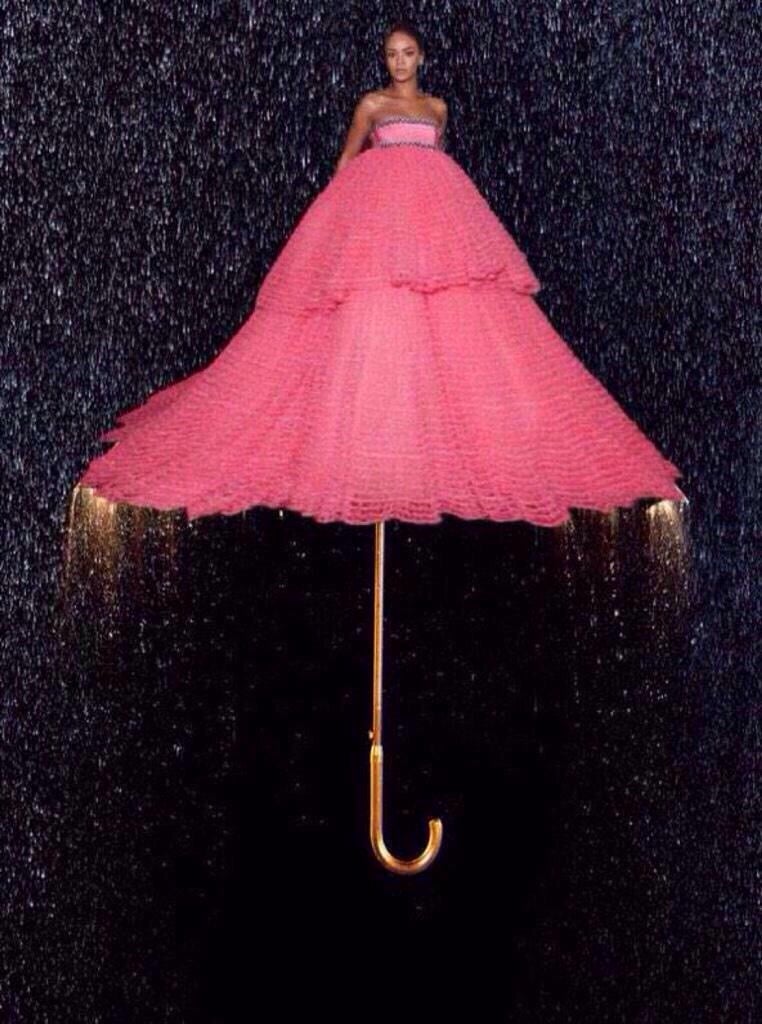
While still staying in the realms of pop music, “Umbrella” marked an apparent change in sonic direction for Rihanna. The singer herself initially though the song was “weird” and “interesting”. Reid called them every day for several weeks that the trio finally gave in and agreed to give the song to Rihanna. As Seabrook writes, it was only because Jay-Z and L.A. It seemed strange to the producers that Rihanna – hardly a big star at the time – could end up with such an obvious smash-in-the-making. When the song was originally offered to Britney, the elder pop star’s team insisted they didn’t need another song at that time (they were about to unleash the “It’s Britney, Bitch”-fronted “Gimme More”). The team who built “Umbrella” included producer Tricky Stewart, songwriter The-Dream, and vocal producer Kuk Harrell. Pop songs today are like a virus, constructed by vast writing teams to work their way into your brain quickly, then spread out far and wide to try and stay there as long as possible.

Still, in 2007, you couldn’t stay on top of the charts simply because you had charisma and ‘the vibe’ – you needed monster hits. In her auditions, she sang out-of-tune (she didn’t have any formal training), but she nevertheless captivated Jay-Z with “her eyes, this determination.” In other words, Rihanna had that elusive ‘X Factor’ – something that can’t be produced, faked, or covered up with vocal techniques and elaborate stage designs. When she was first discovered in Barbados, talent scouts weren’t necessarily interested in her voice – it was good, of course, but they were mainly focused on her ‘girl-next-door’ quality. John Seabrook’s book Song Machine paints a vivid picture of Rihanna’s rise. it seemed strange to the producers that Rihanna – hardly a big star at the time – could end up with such an obvious smash-in-the-making” “The song was originally offered to Britney. And, finally, both had the qualities most valued by record label A&Rs: a hunger to perform (mostly to escape their less-than-favourable surroundings) and very little creative input of their own (at least in the initial phases of their career). Both had highly publicised personal lives and relationships with other A-listers. Both used their coming-of-age as a marketing tool (Britney was “not a girl, not yet a woman”, while Rihanna was a “good girl gone bad”).

Both have industrial-sized music machines working on their behalves. There are a lot of reasons to link Rihanna’s story to Britney’s. “Umbrella”, after all, wasn’t originally intended for Rihanna – it was first offered to Britney Spears, whose label famously turned it down.


Things were, of course, about to change, but it’s interesting to imagine what might have happened had history turned out differently. She’d had big hits, like the dancehall-inflected “Pon De Replay” and the “Tainted Love”-sampling “SOS” (the latter of which earned Rihanna her first #1), but a lot of her music was dismissed as by-the-numbers ‘urban’ pop filler, and it was hard to see her breaking through into pop’s top tier. Though she was already two albums into her career, Rihanna still hadn’t quite found her musical identity until “Umbrella” came out. And then there was Rihanna, a Caribbean-diva-in-making who already had the hits, the looks, and the moves, but who lacked that one special song. Beyoncé was going steady, but hadn’t quite crossed over from the more R&B-centric side of pop music into the full-on pop juggernaut she is today. Lady Gaga, Katy Perry, and Kesha were still a year or two from arriving to the party with their fireworks, bad romances, and era-defying anthems, while Britney Spears was in the middle of a highly-publicised breakdown. In March 2007, the world desperately needed a new, female pop hit.


 0 kommentar(er)
0 kommentar(er)
